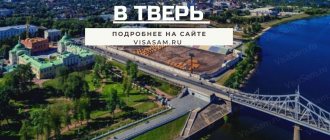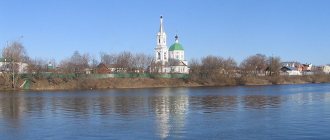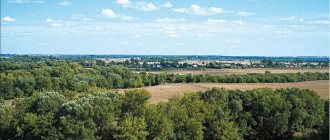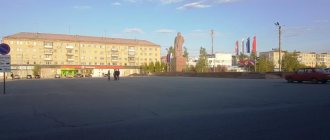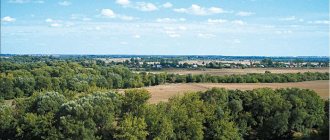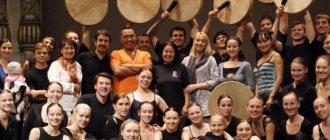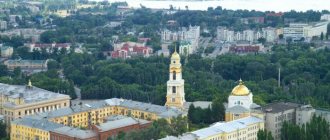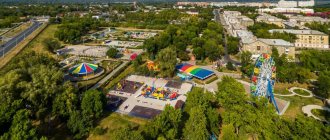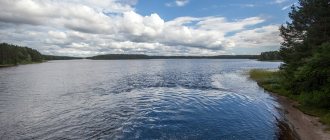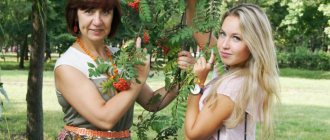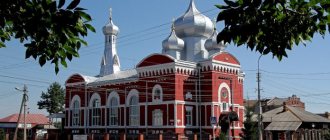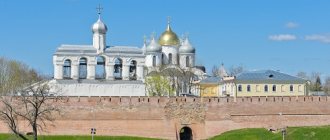Ust-Labinsk is one of the cities of the Krasnodar region of the Russian Federation. It is located in the middle reaches of the Kuban River, on its right (northern) bank. It is the center of the Ust-Labinsk region and the corresponding urban settlement. Distance to Krasnodar – 62 km. The population in Ust-Labinsk is 40,687 people.
Natural features
Ust-Labinsk is located at the opposite (that is, northeastern) end of the Krasnodar reservoir from Krasnodar. The climate is mild and only slightly more continental than in Krasnodar. Summer is long and hot, which is why the weather is not always comfortable. This has been especially pronounced in recent years, which is apparently due to the trend towards climate warming.
Winter, on the contrary, is very comfortable, mild, but not too wet. There is no snow cover at times. Severe frosts are rare and very rarely go below minus 20. The average temperature in January is minus 3 °C, and in July - 23.4 degrees. Precipitation is moderate: 675 mm. In general, conditions are favorable for human habitation.
The area is a flat Kuban plain. There are steep slopes only on the descent to the Kuban River. Conditions are favorable for farming. The presence of chernozems also contributes to this.
Economy of the city
The basis of the economy of Ust-Labinsk is agriculture. All major types of crops are grown. The industry is mainly focused on processing agricultural products. Oils, sugar, milk, seeds, flowers, poultry, agricultural machinery, meat, aerated concrete, and bricks are produced here.
Transport is represented by a railway line connecting Krasnodar with Kropotkin. On the railway trains and electric trains stop at the station. There is also a highway junction that connects the city with Krasnodar, Maikop, Kropotkin, and Korenovsk. There is a bus station. In the city itself there are minibuses and buses.
Actual weather in the city of Ust-Labinsk
+3 °C
The city of Ust-Labinsk
is the administrative center of the Ust-Labinsk region. A city with a rich Cossack history is located at the confluence of the two largest rivers in the North Caucasus, the Kuban and Laba. There are many glorious monuments and attractions in it. And yet, the main asset and pride of Ust-Labinsk are its people. Hardworking, honest, sincere, caring with all their hearts for the well-being of their native land!
The total area of the Ust-Labinsk urban settlement is 3,715 hectares. The population of the Ust-Labinsk urban settlement is more than 42.5 thousand people. Of these: children under 18 years of age - 10,763 people, pensioners - 16,298 people, women - 22,846 people, men - 19,753 people. About 10 nationalities live on the territory of the Ust-Labinsk urban settlement. The most numerous of them: Russians - 38 thousand people; Armenians – 1892 people; Ukrainians – 1280 people; gypsies – 391 people; Belarusians – 260 people; Adyghe - 156 people; Azerbaijanis – 137 people. The number of secondary schools is 7, correctional schools are 2, the number of students is 4575 people; the number of secondary educational institutions and universities is 4, the number of students is 1870 people; the number of municipal preschool educational institutions is 12, attended by 1460 children.
The city has a cultural center "Kuban", a city House of Culture, a Central Library with two branches, two stadiums, a sports complex "Olympus", a sports complex "Start", five multifunctional sports grounds, a music school, an art school, .
The largest enterprises of the Ust-Labinsk urban settlement are: - Florentina LLC (vegetable oil production); — CJSC “Sakharny” (production of granulated sugar); — Elevator LLC (grain storage and processing); — JSC “Rassvet” (production of agricultural products); — Glavstroy-Ust-Labinsk LLC (production of aerated concrete blocks).
The largest enterprise in the city of Ust-Labinsk is Management LLC.
AgroHolding "Kuban" was created on June 11, 2002 on the basis of the collective farm "Kuban" in the Ust-Labinsk region. Today AgroHolding is one of the largest agricultural business structures in the South of Russia. It consists of 19 enterprises, including: 11 agricultural, 3 elevators with a total capacity of 200 thousand tons, 2 unique plants for the production and processing of seeds, a mill complex, a bakery, etc. AgroHolding "Kuban" employs over 5 thousand people. The size of the earthen wedge is 75 thousand hectares. AgroHolding “Kuban” has created a vertically integrated industry structure, which includes 5 divisions: “Agricultural Enterprises”, “Seed Growing”, “Grain Storage and Processing”, “Sugar”, “Construction Industry”.
Population of the city of Ust-Labinsk
In 2021, the number of inhabitants was 40,687 people. The population dynamics curve shows growth until 1998. In 1897 there were only 5,100 people, and in 1816 - 1,731. In the 20th century, the population in Ust-Labinsk grew, and in 1996 it amounted to 44,300 people. After this, there is a gradual decline. There was growth only in 2002, 2010 and 2011. In 2021, the city was in 373rd place in terms of the number of residents among Russian cities.
Vacancies at the employment center of Ust-Labinsk
The city requires workers of various specialties. The number of vacancies is very high when compared with that in other small and medium-sized cities in Russia. This means that there should be no problems with employment here. As of mid-2021, vacancies often include vacancies for a janitor, a medical worker, a cleaner, and less often a driver.
There are also many technical specialties. However, the absence of large heavy industries affects the nature of such vacancies - there are no narrow production specialties. Typical for Ust-Labinsk are auxiliary workers, mechanics, sorters, loaders, weighers, electricians, welders, etc.
Salaries are very different. The minimum – 11163 – occurs in approximately 1/3 – ¼ of vacancies. A very common salary option is in the range from 12 to 20 thousand rubles. Salaries from 20 to 30 thousand are rare. Above 30,000 are isolated cases. The biggest ones here, oddly enough, are with doctors.
For those who want to earn a lot, there are separate vacancies for working in remote regions on a rotational basis. The work is hard and in the harsh conditions of northern Siberia. Prices here range from 68,000 to 172,000 thousand rubles. There are usually few such offers.
An excerpt characterizing Ust-Labinsk
“Skveg’no,” he said, throwing away a wallet with several gold pieces. “G’ostov, count, my dear, how much is left there, and put the wallet under the pillow,” he said and went out to the sergeant. Rostov took the money and, mechanically, putting aside and arranging old and new gold pieces in piles, began to count them. - A! Telyanin! Zdogovo! They blew me up suddenly! – Denisov’s voice was heard from another room. - Who? At Bykov’s, at the rat’s?... I knew,” said another thin voice, and after that Lieutenant Telyanin, a small officer of the same squadron, entered the room. Rostov threw his wallet under the pillow and shook the small, damp hand extended to him. Telyanin was transferred from the guard for something before the campaign. He behaved very well in the regiment; but they did not like him, and in particular Rostov could neither overcome nor hide his causeless disgust for this officer. - Well, young cavalryman, how is my Grachik serving you? - he asked. (Grachik was a riding horse, a carriage, sold by Telyanin to Rostov.) The lieutenant never looked into the eyes of the person he was talking to; his eyes constantly darted from one object to another. “I saw you rode by today...” “Nothing, good horse,” answered Rostov, despite the fact that this horse, which he bought for 700 rubles, was not worth even half of that price. “She started falling on the left front...,” he added. - The hoof is cracked! It's nothing. I will teach you and show you which rivet to use. “Yes, please show me,” said Rostov. “I’ll show you, I’ll show you, it’s not a secret.” And you will be grateful for the horse. “So I’ll order the horse to be brought,” said Rostov, wanting to get rid of Telyanin, and went out to order the horse to be brought. In the entryway, Denisov, holding a pipe, huddled on the threshold, sat in front of the sergeant, who was reporting something. Seeing Rostov, Denisov winced and, pointing over his shoulder with his thumb into the room in which Telyanin was sitting, winced and shook with disgust. “Oh, I don’t like the fellow,” he said, not embarrassed by the sergeant’s presence. Rostov shrugged his shoulders, as if saying: “Me too, but what can I do!” and, having given orders, returned to Telyanin. Telyanin was still sitting in the same lazy position in which Rostov had left him, rubbing his small white hands. “There are such nasty faces,” Rostov thought as he entered the room. - Well, did they tell you to bring the horse? - Telyanin said, getting up and looking around casually. - I ordered it. - Let's go on our own. I just came in to ask Denisov about yesterday’s order. Got it, Denisov? - Not yet. Where are you going? “I want to teach a young man how to shoe a horse,” said Telyanin. They went out onto the porch and into the stables. The lieutenant showed how to make a rivet and went home. When Rostov returned, there was a bottle of vodka and sausage on the table. Denisov sat in front of the table and cracked his pen on paper. He looked gloomily into Rostov's face. “I’m writing to her,” he said. He leaned his elbows on the table with a pen in his hand, and, obviously delighted at the opportunity to quickly say in words everything he wanted to write, expressed his letter to Rostov. “You see, dg'ug,” he said. - We sleep until we love. We are children of God... but I fell in love - and you are God, you are pure, as on the day of creation... Who else is this? Drive him to Chog't. Once! - he shouted at Lavrushka, who, without any timidity, approached him. - Who should be? They ordered it themselves. The sergeant came for the money. Denisov frowned, wanted to shout something and fell silent. “It’s a big deal,” he said to himself. - How much money is left in the wallet? - he asked Rostov. – Seven new and three old. - Ah, skveg'no! Well, why are you standing there, stuffed animals, send the sergeant-major,” Denisov shouted at Lavrushka. “Please, Denisov, take the money from me, because I have it,” Rostov said, blushing. “I don’t like to borrow from my own people, I don’t like it,” Denisov grumbled. “And if you don’t take the money from me in a friendly manner, you’ll offend me.” “Really, I have it,” Rostov repeated. - No. And Denisov went to the bed to take out his wallet from under the pillow. - Where did you put it, Rostov? - Under the bottom pillow. - No, no. Denisov threw both pillows onto the floor. There was no wallet. - What a miracle! - Wait, didn’t you drop it? - said Rostov, lifting the pillows one by one and shaking them out. He threw off and shook off the blanket. There was no wallet. - Have I forgotten? No, I also thought that you were definitely putting a treasure under your head,” said Rostov. - I put my wallet here. Where is he? – he turned to Lavrushka. - I didn’t go in. Where they put it is where it should be. - No... - You just throw it somewhere and forget. Look in your pockets. “No, if only I hadn’t thought about the treasure,” said Rostov, “otherwise I remember what I put in.” Lavrushka rummaged through the entire bed, looked under it, under the table, rummaged through the entire room and stopped in the middle of the room. Denisov silently followed Lavrushka’s movements and, when Lavrushka threw up his hands in surprise, saying that he was nowhere, he looked back at Rostov. - G'ostov, you are not a schoolboy... Rostov felt Denisov's gaze on him, raised his eyes and at the same moment lowered them. All his blood, which was trapped somewhere below his throat, poured into his face and eyes. He couldn't catch his breath. “And there was no one in the room except the lieutenant and yourself.” “Here somewhere,” said Lavrushka. “Well, you little doll, move around, look,” Denisov suddenly shouted, turning purple and rushing at the footman with a threatening gesture. - Make sure you have a wallet, otherwise I’ll burn it. I'll kill everyone! Rostov, looking around Denisov, began to button up his jacket, strapped on his saber and put on his cap. “I tell you to have a wallet,” Denisov shouted, shaking the orderly by the shoulders and pushing him against the wall. - Denisov, leave him alone; “I know who took it,” Rostov said, approaching the door and not raising his eyes. Denisov stopped, thought and, apparently understanding what Rostov was hinting at, grabbed his hand. – Gasp! - he shouted so that the veins, like ropes, swelled on his neck and forehead. “I’m telling you, you’re crazy, I won’t allow it.” The wallet is here; I'll take the shit out of this mega-dealer, and it will be here. “I know who took it,” Rostov repeated in a trembling voice and went to the door. “And I’m telling you, don’t you dare do this,” Denisov shouted, rushing to the cadet to hold him back. But Rostov snatched his hand away and with such malice, as if Denisov were his greatest enemy, directly and firmly fixed his eyes on him. - Do you understand what you are saying? - he said in a trembling voice, - there was no one in the room except me. Therefore, if not this, then... He could not finish and ran out of the room. “Oh, what’s wrong with you and with everyone,” were the last words that Rostov heard. Rostov came to Telyanin’s apartment. “The master is not at home, they have left for headquarters,” Telyanin’s orderly told him. - Or what happened? - added the orderly, surprised at the upset face of the cadet. - There is nothing. “We missed it a little,” said the orderly. The headquarters was located three miles from Salzenek. Rostov, without going home, took a horse and rode to headquarters. In the village occupied by the headquarters there was a tavern frequented by officers. Rostov arrived at the tavern; at the porch he saw Telyanin's horse. In the second room of the tavern the lieutenant was sitting with a plate of sausages and a bottle of wine. “Oh, and you’ve stopped by, young man,” he said, smiling and raising his eyebrows high. “Yes,” said Rostov, as if it took a lot of effort to pronounce this word, and sat down at the next table. Both were silent; There were two Germans and one Russian officer sitting in the room. Everyone was silent, and the sounds of knives on plates and the lieutenant’s slurping could be heard. When Telyanin finished breakfast, he took a double wallet out of his pocket, pulled apart the rings with his small white fingers curved upward, took out a gold one and, raising his eyebrows, gave the money to the servant. “Please hurry,” he said. The gold one was new. Rostov stood up and approached Telyanin. “Let me see your wallet,” he said in a quiet, barely audible voice. With darting eyes, but still raised eyebrows, Telyanin handed over the wallet. “Yes, a nice wallet... Yes... yes...” he said and suddenly turned pale. “Look, young man,” he added. Rostov took the wallet in his hands and looked at it, and at the money that was in it, and at Telyanin. The lieutenant looked around, as was his habit, and suddenly seemed to become very cheerful. “If we’re in Vienna, I’ll leave everything there, but now there’s nowhere to put it in these crappy little towns,” he said. - Well, come on, young man, I’ll go. Rostov was silent. - What about you? Should I have breakfast too? “They feed me decently,” Telyanin continued. - Come on. He reached out and grabbed the wallet. Rostov released him. Telyanin took the wallet and began to put it in the pocket of his leggings, and his eyebrows rose casually, and his mouth opened slightly, as if he was saying: “yes, yes, I’m putting my wallet in my pocket, and it’s very simple, and no one cares about it.” . - Well, what, young man? - he said, sighing and looking into Rostov’s eyes from under raised eyebrows. Some kind of light from the eyes, with the speed of an electric spark, ran from Telyanin’s eyes to Rostov’s eyes and back, back and back, all in an instant.
Attractions
In the vicinity of Ust-Labinsk there are groups of mounds. In the city itself there are earthen fortifications of the Ust-Labinsk fortress, dating back to the end of the 18th century, as well as buildings from the beginning of the 20th century in the central part of the village.
The population and tourists can visit the following sites:
- City park of culture and recreation. It was created in 1934. There is a dance floor, a cafe and a carousel.
- Church of St. Sergius of Radonezh. The temple appeared in 2007. There is a chapel in the courtyard. The fence is made of brick.
- Monument-memorial to Suvorov. It was created in 1978 in honor of the 200th anniversary of Suvorov’s visit to the city.
- Memorial to soldiers of the Soviet era. The complex appeared in 1968 and was reconstructed in 1985. A major renovation was carried out in 2010.
Architecture
Most of the city is built on one-story private houses.
Historically, the city is divided into two parts: “bottom” - formerly a Cossack village, and “top” (“forstadt”) - the former settlement of Ust-Labinskaya, which was inhabited by non-residents. There is also a microdistrict of "Khrushchev" - Cheryomushki. An area of new one-story buildings (since the late 1970s) in the eastern part of the city - “Volnaya” (after the name of the street), “Pole Chudes” - an area allocated for private residential development in the north-east of the city, “Vinogradniki” - a private residential area development on the territory of former vineyards.
In everyday life, residents call the city Ust-Laba
,
Weakness
.
